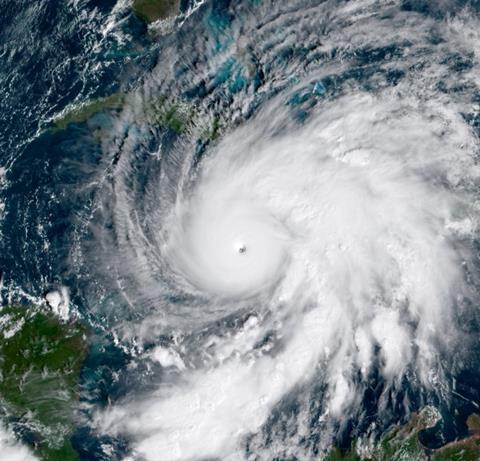Economic losses from Hurricane Melissa will far exceed insured payouts, Moody’s Ratings has warned, exposing Jamaica’s limited protection against extreme weather events
Hurricane Melissa’s destruction across western Jamaica is set to drive economic losses that will be multiples of insured losses, according to a new sector analysis from Moody’s Ratings.

The Category 5 storm brought destructive winds, flooding, and storm surge that caused severe damage to property and infrastructure, alongside tragic loss of life.
Moody’s said only around 20% of residential properties in Jamaica are insured, and roughly 95% of those are underinsured, meaning the vast majority of losses will fall on households and the public sector.
Jamaica is rated B1 positive by Moody’s but is among the world’s most disaster-exposed sovereigns, facing climate-related events on average once per year over the past decade.
The ratings agency expects Hurricane Melissa to cause a “severe but temporary” contraction in real GDP, driven by sharp declines in tourism, agriculture, and infrastructure activity.
The government’s disaster risk financing framework includes contingent credit lines, catastrophe bonds, and regional insurance pooling, but Moody’s warned these measures will be “insufficient for a storm of this magnitude”.
About 4% of GDP is available through credit lines from the Inter-American Development Bank and insurance via the Caribbean Catastrophe Risk Insurance Facility (CCRIF), alongside a $150m parametric catastrophe bond issued in May 2024 that is expected to pay out in full.
International insurers and reinsurers are likely to shoulder much of the insured loss burden, particularly through coverage for hotels and resorts in Montego Bay, Negril, and Jamaica’s South Coast – areas that sustained extensive damage.
Local insurers, meanwhile, hold relatively small capital bases but are reinsured to absorb catastrophe risk.
Moody’s noted that non-life insurers have reduced their Caribbean exposures through higher attachment points and premiums in recent years.
Business interruption costs will be significant as power and transport networks are rebuilt, and a “demand surge” for materials and labour is expected to push up reconstruction costs.
While insured losses will impact some global reinsurers’ fourth-quarter earnings, Moody’s said the broader industry remains well-diversified, with most losses concentrated locally and regionally.
“Much of the damage from the storm will fall on the uninsured population and the public sector,” Moody’s said, adding that Jamaica would likely need “significant international donor support” to aid recovery.










No comments yet